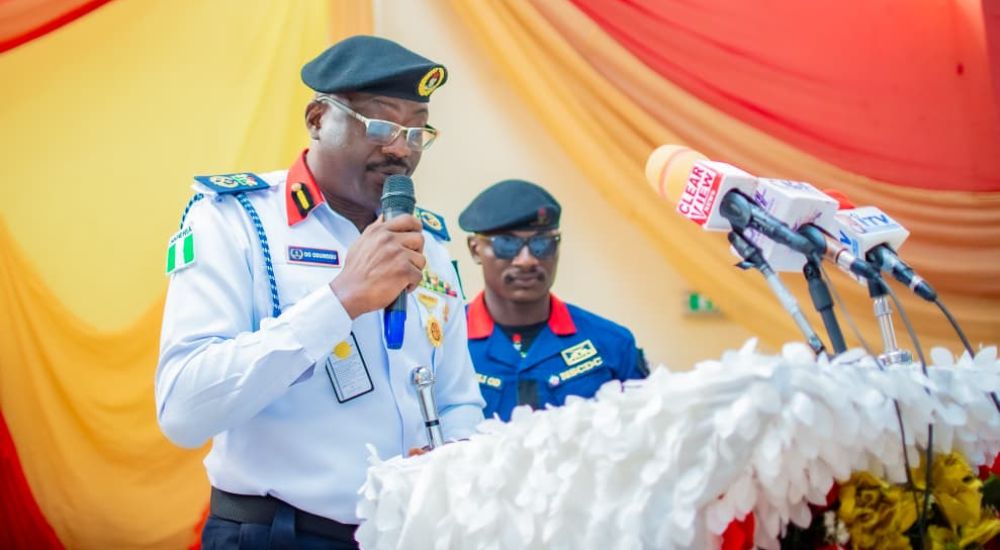The Commandant of the Nigeria Security and Civil Defence Corps (NSCDC), Federal Capital Territory (FCT) Command, Dr. Olusola Odumosu, has restated his commitment to advancing peace, justice, and sustainable development across the FCT.
Odumosu gave the assurance at a symposium organized by the FCT Command in collaboration with the University of Abuja to mark this year’s International Day of Peace, held at the university, account to a state signed by DSC Monica Ojobi,
FCT Command Public Relations Officer.
Advertisement
Speaking on the theme: “Advancing Peace through the Sustainable Development Goals (SDGs),” Odumosu said the subject could not have come at a better time, given the multiple threats confronting Nigeria and the world, including violent extremism, communal conflicts, cybercrime, environmental degradation, poverty, inequality, and youth unemployment.
“In the face of these challenges, we are reminded of a timeless truth: peace is not the absence of conflicts, it is the presence of justice, opportunity, and hope. It remains the cornerstone of human progress because without peace, development becomes elusive, and without development, the world becomes fragile,” Odumosu said.
The FCT Commandant stressed that the United Nations’ 2030 Agenda for Sustainable Development provides a global blueprint for progress, noting that SDG 16, which focuses on peace, justice, and strong institutions, is foundational to the achievement of all other goals.
“We cannot eradicate poverty with SDG 1, achieve quality education with SDG 4, ensure gender equality with SDG 5, or foster economic growth with SDG 8 without peace. Without progress in these goals, peace itself cannot be sustained,” he added.
Advertisement
While highlighting the role of the NSCDC, Odumosu explained that the Corps has been pivotal in conflict prevention and resolution, safeguarding critical national assets, and creating an enabling environment for development. He revealed that the Peace and Conflict Resolution Unit of the FCT Command has successfully resolved thousands of disputes at the community level, easing the burden on conventional courts.
He also outlined several initiatives undertaken by the command, including medical outreaches in Jahi, Pyakasa, and Maitama; training of medical personnel; peace education in secondary schools; sign language training for 250 personnel; and advocacy campaigns on HIV/AIDS and peace.
“At the NSCDC FCT Command, we have translated global and national frameworks into tangible local action. Each initiative aligns with specific SDG targets and reflects our commitment to building peaceful, inclusive, and resilient communities,” the Commandant emphasized.
Odumosu commended the University of Abuja for partnering with the Corps, urging the academic community to integrate peace education, sustainable development studies, and civic responsibility into their curriculum.
According to him, such measures will “nurture a new generation of Nigerians who will not only dream of a better society but actively build it.”
Advertisement
Also speaking, the Acting Vice Chancellor of the University of Abuja, Prof. Matthew Adamu, stressed the importance of justice in fostering peace.
“If justice prevails, peace will naturally fall in place, and development will take center stage,” Adamu noted.
The Dean of the Faculty of Social Sciences, Prof. Mutiullah Olasupo, added that Nigeria has made efforts at attaining peace since independence but has failed to sustain it.
“Nigeria cannot have peace until it nurtures and implements justice,” he observed.
The event ended with the presentation of certificates to participants.

